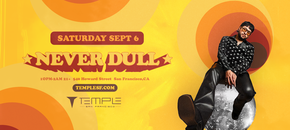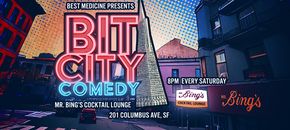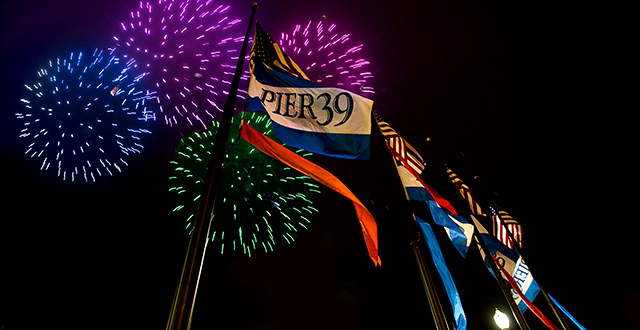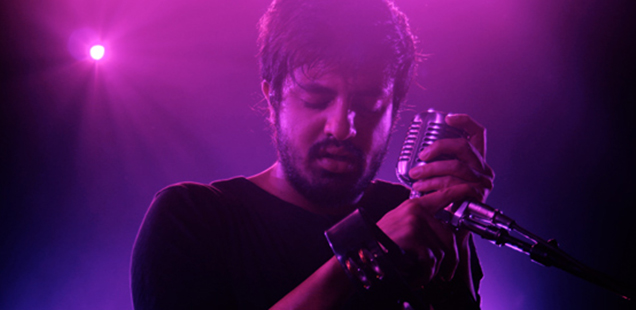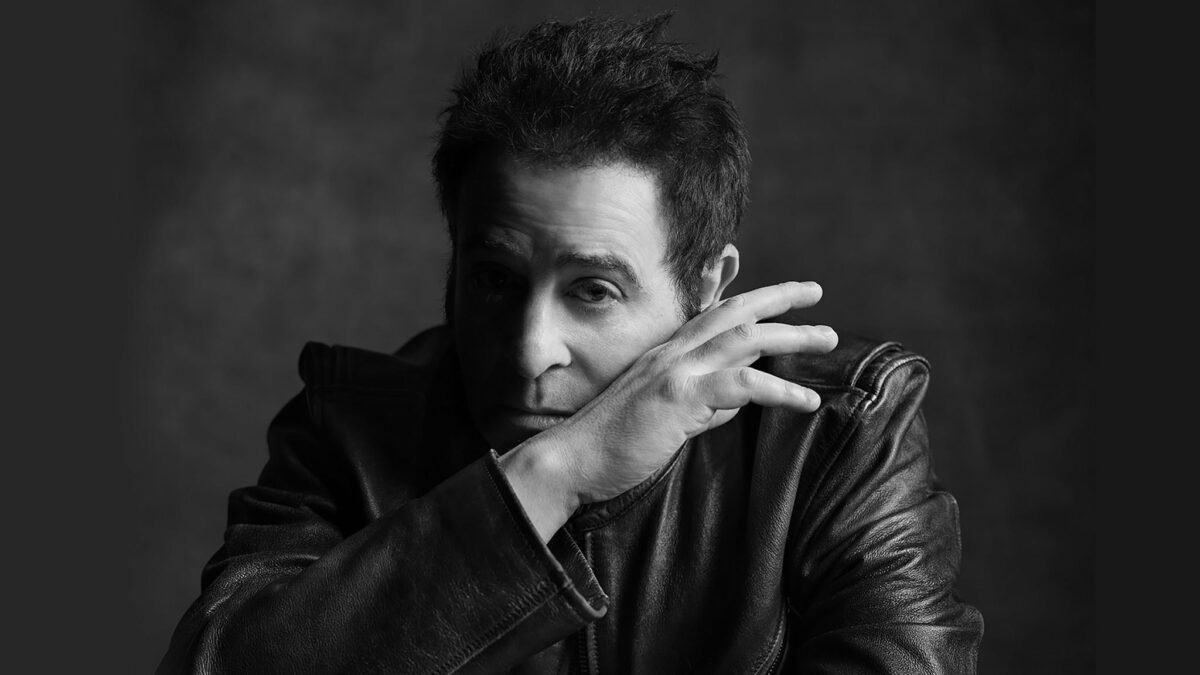Young Fathers Talks Race Identity, Music Genres & Their Mezzanine Performance Between Coachella Shows
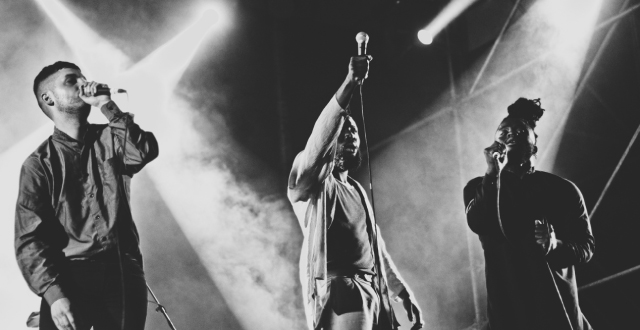
Young Fathers, the hip-hop-tinged pop group from Edinburgh, Scotland, are seemingly saturated with irony. Originally formed as a “Three-Style” group, they connected at the age of 14 at a hip-hop night at the Bongo Club, a friendship that has lasted the ages. Among their shared love of music, each of the members were named after their fathers—hence the name “Young Fathers.”
Nearly 14 years later, Young Fathers finds themselves amidst a headlining U.S. tour with a stop at the Mezzanine in San Francisco on Friday, April 15th.
The road to success has been a windy one for this Scottish band of African-descent, and perhaps with some luck and destiny at play. During their earlier years, a clash with their local production company turned out to be an opportunity in disguise, leading them to be signed by Los Angeles record label, Anticon Records (13 & God, Why?, Son Lux) who released their mix tapes, Tape One and Tape Two.
With constant touring in Europe and the States, and memorable performances at Austin’s SXSW Festival in 2013, Young Fathers gained a reputation for their formidable and raucous live shows. They’ve toured with Massive Attack and are set to play both weekends at this year’s Coachella festival supporting their last record, White Men Are Black Men Too.
We caught up with ‘G’ Hastings to talk about their unique bond, their recording process and equality.
You guys have known each other forever. How does that affect you all musically?
It’s good. We’ve known each other half of our lives. I was just talking last night to the drummer of HXLT, who we’re on tour with. He noticed how close we are. We’re just like a family. You spend so much time with each other, and it’s not always a happy family, but it’s still a family. Your family are the people you can be most honest with and have arguments one minute and then get along really well the next. That closeness, you can’t really buy it.
The music is just kind of engrained so when you have that comfort, everything happens a lot more naturally. When we’re making music there’s this telepathic thing that happens, that no one really talks about. We only talk about how we do things when we do interviews, but when we’re in the studio, we don’t talk about the plan. It’s just left up in the air. That’s the best way to keep it. Thinking up what genre, sticking to one thing, I can’t think of anything worse, musically.
How is the recording process for you guys?
There are no rules, but the initial rule is to not be lazy. We all write separately, we all write together; sometimes someone has an idea and sometimes I have the music made. We just go with whatever is good. You wanna get the song finished by the end of the day and the only way you’re every gonna figure something out is if you try it. We don’t usually make a lot of songs that don’t get used. When you hear an album it’s almost everything we recorded for that album. That method works for us where you don’t take as long on the small things and try to capture the essence. It’s more about the feeling rather than the production. the soul of the song is important to us.
The title of your last record, White Men Are Black Men Too, is a bold statement. What does it mean to you?
The album title doesn’t just mean one thing—it could be a bunch of things. Metaphorically, we live in in an age where people like to stereotype and box people up through religions and races of people, and say they’re like ‘that’ or like ‘this’. We’ve always kind of detested that, especially in the media, and with us growing up, based on how we look. Outside of that, you can take the obvious meaning and say ‘well, everyone’s from Africa.’ That’s like the literally meaning of it—like all men—like in the bible…were from Africa. Or we can talk about our own experience of being in a band that wasn’t able to fit in anywhere. Although we enjoy it, it makes it extremely hard for us.
We would say the title to people before we put it out and a lot of people would think of equality. We’re not saying that things are now equal. If we have put a question mark at the end it might have been more cohesive. If we called it ‘Black and White Unite’, it would have had the same sentiment but it wouldn’t have turned heads. Ultimately, talking is the best thing that you can do. People like to sweep things like race, religion and gender under the rug. We’re far from equality, even though it’s better than it used to be. For us, there’s still a long way to go for true equality. So the album name doesn’t necessarily mean one thing. it’s purposely open ended.
Has it caused any controversy?
It’s made people talk and it’s sparked some conversation. [For example,] we found it could be offensive to women, because you’re saying men, and it can be offense to white people and black people, so even in the statement it’s equal to who it can be offensive to.
You’ve sort of been grouped into the hip-hop genre, but your music is much broader. How much influence does that genre have on you?
When we were younger we weren’t even into hip-hop, but we’ve all been fans of pop music. We’ve always respected the pop sensibility in songs. We like hooks, we like catchy things and melodic things and putting two things together that shouldn’t go together to create something new. You learn to not look up to people, especially how long we’ve been at it. People can be amazing, but they’re just people dedicated to what they do. I grew up listening to my father playing soul and reggae, and African music. We were listening to boy bands and hardcore dance music when we were younger. You get a bit older you start getting into different and unusual bands.
Do you have new material in the works?
Yes, I don’t know if it will come out this year. We’ve been on the road too long. We need to get back in the studio and see what we come up. The last albums we did in a matter of weeks, even though they were good we might want to spend a little more time. I’m feeling a little bit rusty, actually. I need to get back in the studio and just make sounds.

